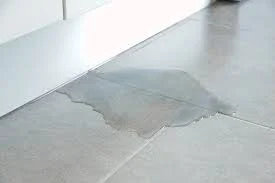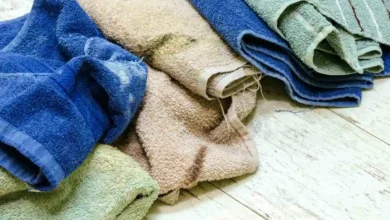The Causes of Slab Leaks and How Plumbers Repair Them

Slab leaks happen when there is a leak in the pipes inside or beneath the foundation of a house. Unattended slab leaks can soak the soil beneath your house, causing uneven flooring and gradual sinking. Here is why slab leaks occur and how commercial plumbers repair them:
Causes of Slab Leaks
Slab leaks result from some form of plumbing system malfunction. The system issues could be from plumbing line deterioration, improper installation, chemical reactions, or earth movements. Here is how each of these factors causes slab leaks:
Pipe Corrosion
Copper and galvanized steel pipes are susceptible to corrosion over time. Corrosion occurs due to chemical reactions with other elements, such as water and soil minerals. Pipes weakened by corrosion result in minor to significant leaks under the slab.
High Water Pressure
High water pressure puts excess force on pipes, leading to leaks and bursts. Water pressure could increase because of a broken regulator or pressure bursts. Safeguard your home investment by testing your water pressure regularly.
Poor Installation
Improper plumbing pipe installation under the slab could result in leaks over time. Common installation errors include misaligned pipe placement, poor joint sealing, and insufficient pipe support. Pipes lose strength in the regions that were bent, dented, or kinked during installation. When water pressure increases or surroundings cause abrasion, the pipes may explode.
Shifting Soil
The earth below the slab may shift due to variations in soil conditions, such as expansive clay soil or seismic activity. Expansive soils expand in water because of their rich composition of montmorillonite and other clay minerals. Expansion results in underground pipes rubbing up against abrasive elements in the soil or scraping against foundations. This friction wears pipes down over time and creates tiny leaks. Water from the leaks increases soil expansion further, causing more leakages.
Signs of Slab Leaks
Slab leaks may go unnoticed for years because the changes are slight and gradual. Detecting leaks early on and fixing the issues promptly saves your structure from complete damage. Contact a commercial plumber if you observe any of the following indications of slab leakage:
- Increased water costs without a rise in individual usage
- Foundation cracks
- Unpleasant odor coming from the walls or flooring
- Moist or discolored floor coverings
- Sounds of running water when the faucets are closed
- Warm or moist floor areas
- Uneven development in foundation or lawn plants
- Observable changes in the surrounding soil
Methods of Repairing Slab Leaks
Experienced commercial plumbers will decide on the repair method after assessing the cause of the leaking and the extent of the damage. These professionals can identify issues swiftly and locate leaks using special instruments like line-tracing and electronic listening devices. If necessary, they may use a water line video inspection to pinpoint the precise position of the leak.
Spot repair and repiping are common solutions to leaks resulting from pipe corrosion. Spot repair involves identifying the precise location of the broken pipe and cutting a tiny hole in the slab to get at it. The plumber then repairs or replaces the damaged segment of the pipe. Repiping is replacing the entire system of corroded pipes with new ones.
Epoxy pipe lining can be an excellent choice for fixing slab leaks caused by wear and abrasion. Professionals add a sturdy epoxy resin coat inside the broken pipe. The resin forms a protective barrier to stop leaks and further deterioration.
Plumbers can install or modify a pressure regulator to address slab leaks from high water pressure. The regulator helps maintain water pressure levels within safe ranges. Another option in this situation is to brace or clamp the pipes to lessen the impact of pressure changes.
Slab leaks from poor installation can be costly to repair. Plumbers may have to excavate greater portions of the concrete to reach the leaking pipes. Fixing installation errors could involve rerouting pipes, reinforcing supports, and resealing joints. Fixing slab leak from shifting soils may involve rerouting or adding flexible pipe connectors. These repairs allow soil movement without unduly taxing the pipes.
Find Commercial Plumbers Near You
Slab leak issues always escalate until they are addressed. Find reputable commercial plumbers to asses your home plumbing for leaks and fix the underlying issues. Contact the business to confirm if their services include slab leak detection and repairs. Schedule an appointment today if you suspect slab leaks in your residential or commercial structures.




